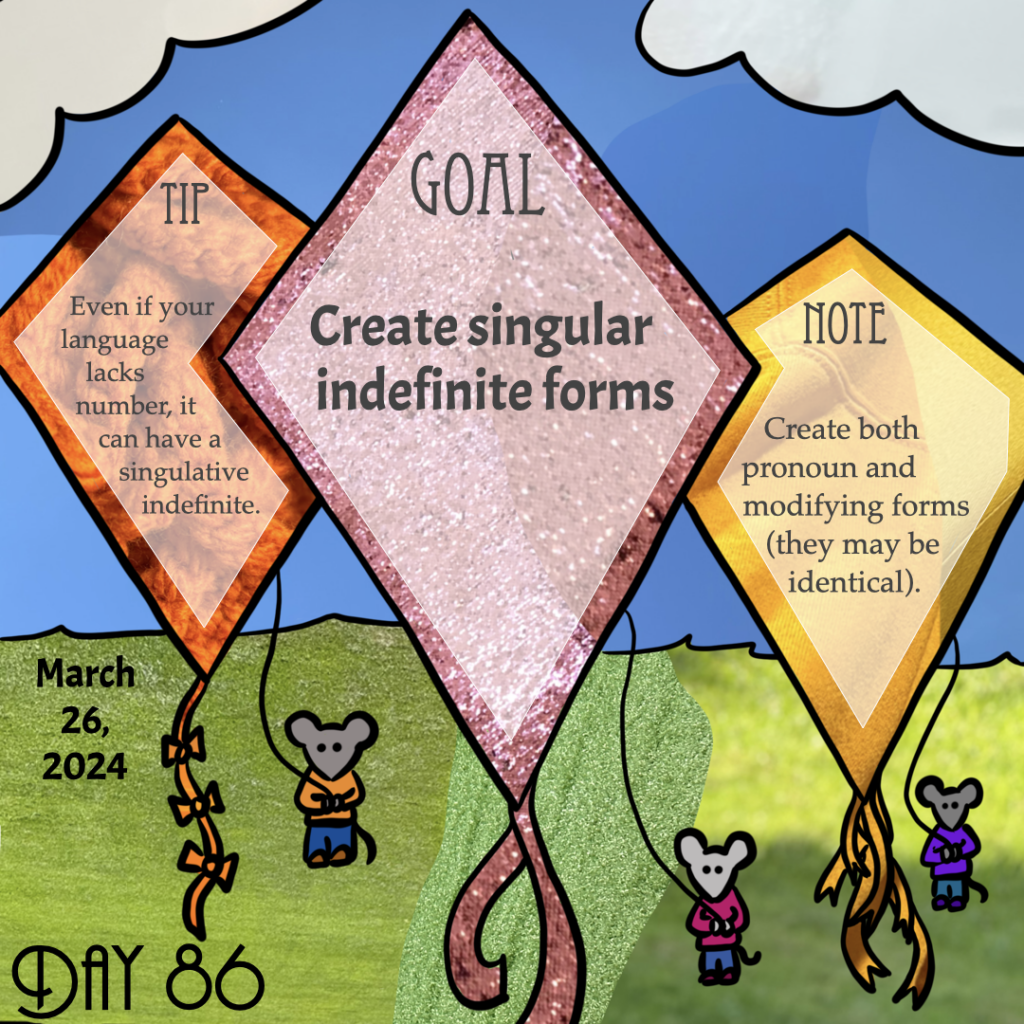
Goal: Create singular indefinite forms
Note: Create both pronoun and modifying forms (they may be identical).
Tip: Even if your language lacks number, it can have a singulative indefinite.
Work focus: Create/Make/List
Today’s goal is to create indefinite modifiers/pronouns that indicate a single entity. For instance, English has forms like one and each to indicate a single referent. Furthermore, those forms are identical whether they occur with a head noun as a modifier or are being used as a pronoun. For instance, I can see “Each conlanger had a new idea” or “Each had a new idea.” You may choose to do the same and have the forms match.
However, it may make sense for your language to have grammatically different forms for modifiers versus pronouns (especially if modifiers and nouns occur with different inflections, which could show up on these different forms).
Even if your language lacks grammatical number distinctions on its nouns, it can still have modifier/pronoun forms to indicate a single referent. It just means there will not be any inflection occurring with the noun to indicate number. Other words, like these forms, can help clarify amount.
Note: I included the modifier and pronoun forms together in this week’s prompts because they are often related (i.e. they can come from the same lexical source). However, you may see that these forms go by many names, including quantifying determiners (or modifiers). Whatever you call them, they are handy forms to create for your language.
